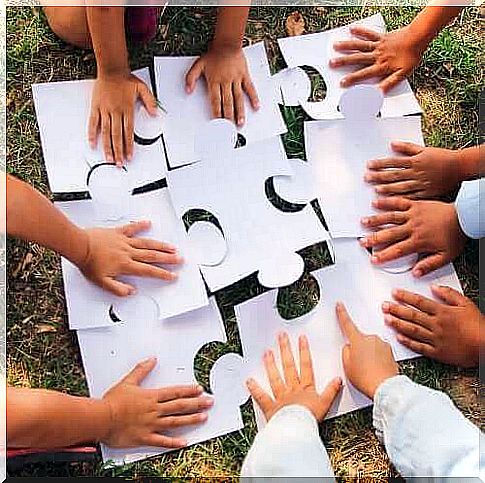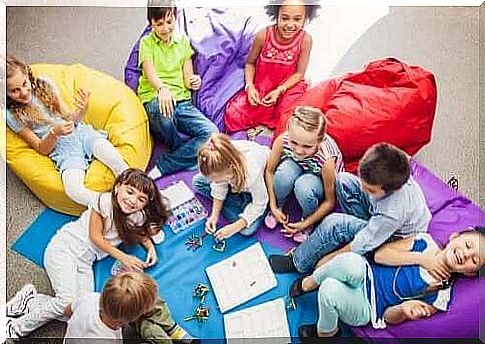The Benefits Of Cooperative Play For Children – Being Parents

The cooperative game is one in which competitiveness disappears. It is a game where the fundamental objective is to be a team and to help each other achieve a goal. It has a lot of uses, but one of its main advantages is that it helps people who participate in the game to build relationships with each other.
Therefore, it is common to resort to cooperative games in activities where a group begins to know each other or in a situation that requires the expansion of the union of an already created group. These games increase prosocial skills, including the ability to share and be caring.
Cooperative games build trust through partnership. They allow you to achieve common goals and have fun. They help to put aside individualistic practices and competitiveness, so that in education they are very useful. We will see more advantages of this type of games.
Cooperative play reduces violence in young children
Cooperative play reduces violence in young children. This is reflected in the study called Cooperative Games in Young Children: A Way to Modify Aggression conducted by April Bay Hinitz in 1994 at the University of Nevada, Reno.

Cooperative learning
Cooperative games are both a form of cooperative learning and, of course, a form of play. Much research is now documenting the benefits of cooperative learning.
The benefits of cooperative learning include the possibility of greater mastery of educational content and the reduction of control and discipline problems in the classroom. Additionally, play has been shown to be essential for mental health and intellectual development.
Autistic children
Cooperative play has also been found to be very useful in therapy situations to improve the communication skills of children with autism or socially excluded children. Children with ASD (Autism Spectrum Disorder) do not equally develop mimic social play or creative activities, so cooperative play is very helpful for them.
Creating a group feeling with cooperative games
Cooperative games are inclusive games and are therefore able to promote a sense of belonging to the group. The importance of academic achievement and a sense of belonging to the group has been extensively documented in several studies, most notably by Geoffrey Cohen of Stanford.
The pleasure of cooperative play
Cooperative games are fun. Pleasure and happiness are increasingly appreciated as important emotions in education systems. Think, for example, of the United Nations Declaration of the Rights of the Child on the Right of Children to Play. Positive psychology is also beginning to document the value of happiness in human health.

Empathy
Cooperative games inspire empathy because the ethic behind them is one of mutual care and interest. This goes against everyone’s individuality, an individuality that increasingly characterizes our society.
Goodbye competitiveness
These games provide a break from the need for competition. It has been widely studied that competition has many disadvantages for children. It increases anxiety and reduces feelings of equality.
As adults, we provide opportunities for children to play cooperatively; we tell them implicitly that cooperation is a very valuable and important social norm. Therefore, cooperative play helps create a positive social climate, which is both safe and enjoyable for children.









